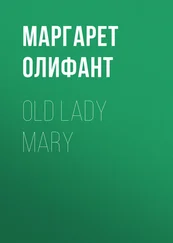Маргарет Олифант - Brownlows
Здесь есть возможность читать онлайн «Маргарет Олифант - Brownlows» — ознакомительный отрывок электронной книги совершенно бесплатно, а после прочтения отрывка купить полную версию. В некоторых случаях можно слушать аудио, скачать через торрент в формате fb2 и присутствует краткое содержание. Жанр: foreign_prose, literature_19, foreign_antique, на английском языке. Описание произведения, (предисловие) а так же отзывы посетителей доступны на портале библиотеки ЛибКат.
- Название:Brownlows
- Автор:
- Жанр:
- Год:неизвестен
- ISBN:нет данных
- Рейтинг книги:5 / 5. Голосов: 1
-
Избранное:Добавить в избранное
- Отзывы:
-
Ваша оценка:
- 100
- 1
- 2
- 3
- 4
- 5
Brownlows: краткое содержание, описание и аннотация
Предлагаем к чтению аннотацию, описание, краткое содержание или предисловие (зависит от того, что написал сам автор книги «Brownlows»). Если вы не нашли необходимую информацию о книге — напишите в комментариях, мы постараемся отыскать её.
Brownlows — читать онлайн ознакомительный отрывок
Ниже представлен текст книги, разбитый по страницам. Система сохранения места последней прочитанной страницы, позволяет с удобством читать онлайн бесплатно книгу «Brownlows», без необходимости каждый раз заново искать на чём Вы остановились. Поставьте закладку, и сможете в любой момент перейти на страницу, на которой закончили чтение.
Интервал:
Закладка:
CHAPTER IV.
A LITTLE DINNER
There was a very pleasant party that evening at Brownlows—the sort of thing of which people say, that it is not a party at all, you know, only ourselves and the Hardcastles, or whoever else it may happen to be. There was the clergyman of the parish, of course—who is always, if he happens to be at all agreeable, the very man for such little friendly dinners; and there was his daughter; for he was a widower, like Mr. Brownlow—and his Fanny was half as much to him, to say the least, as Sara was to her admiring father. And there was just one guest besides—young Keppel, to wit, the son of old Keppel of Ridley, and brother of the present Mr. Keppel—a young fellow who was not just precisely what is called eligible , so far as the young ladies were concerned, but who did very well for all secondary purposes, and was a barrister with hopes of briefs, and a flying connection with literature, which helped him to keep his affairs in order, and was rather of service to him than otherwise in society, as it sometimes is to a perfectly well-connected young man. Thus there were two girls and two young men, and two seniors to keep each other company; and there was a great deal of talk and very pleasant intercourse, enough to justify the rector in his enthusiastic utterance of his favorite sentiment, that this was true society, and that he did not know what people meant by giving dinners at which there were more than six. Mr. Hardcastle occasionally, it is true, expressed under other circumstances opinions which might be supposed a little at variance with this one; but then a man can not always be in the same mind, and no doubt he was quite sincere in what he said. He was a sort of man that exists, but is not produced now-a-days. He was neither High Church nor Low Church, so to speak. If you had offered to confess your sins to him he would have regarded you with as much terror and alarm as if you had presented a pistol at his head; and if you had attempted to confess your virtues under the form of spiritual experience, he would have turned from you with disgust. Neither was he in the least freethinking, but a most correct orthodox clergyman, a kind of man, as I have said, not much produced in these times. Besides this indefinite clerical character he had a character of his own, which was not at all indefinite. He was a little red-faced, and sometimes almost jovial in his gayety, and at the same time he was in possession of a large stock of personal griefs and losses, which had cost him many true tears and heartaches, poor man, but which were very useful to him in the way of his profession. And he had an easy way of turning from the one phase of life to the other, which had a curious effect sometimes upon impartial spectators. But all the same it was perfectly true and genuine. He made himself very agreeable that night at Brownlows, and was full of jest and frolic; but if he had been called to see somebody in trouble as he went home, he would have gone in and drawn forth from his own private stores of past pain, and manifested plainly to the present sufferer that he himself had suffered more bitterly still. He had “come through” all the pangs that a man can suffer in this world. He had lost his wife and his children, till nothing was left to him but this one little Fanny—and he loved to open his closed-up chambers to your eyes, and to meet your pitiful looks and faltering attempt at consolation; and yet at the same time you would find him very jolly in the evening at Mr. Brownlow’s, which hurt the feelings of some sensitive people. His daughter, little Fanny, was pretty and nice, and nothing particular, which suited her position and prospects perfectly well. These were the two principal guests, young Keppel being only a man, as ladies who are in the habit of giving dinners are wont to describe such floating members of the community. And they all talked and made themselves pleasant, and it was as pretty and as lively a little party as you could well have seen. Quantities of flowers and lights, two very pretty girls, and two good-looking young men, were enough to guarantee its being a very pretty scene; and nobody was afraid of any body, and every body could talk, and did so, which answered for the latter part of the description. Such little parties were very frequent at Brownlows.
After dinner the two girls had a little talk by themselves. They came floating into the great drawing-room with those heaps of white drapery about them which make up for any thing that may be intrinsically unamiable 1 1 If there is anything; most of us think there is not. If the unthinking male creatures who abuse it only knew the comfort of it! and what a weariness it saves us! and as for the people who are burnt, it is not because of their crinolines, but because of losing their heads—a calamity to which in all kinds of dresses we are constantly liable.
in crinoline. Before they went up stairs, making it ready for them, a noble fire, all red, clear, and glowing, was in the room, and made it glorious; and the pretty things which glittered and reddened and softened in the bright warm atmosphere were countless.
There was a bouquet of violets on the table, which was Mr. Pitt the gardener’s daily quit-rent to Sara for all the honors and emoluments of his situation, so that every kind of ethereal sense was satisfied. Fanny Hardcastle dropped into a very low chair at one side of the fire, where she sat like a swan with her head and throat rising out of the white billowy waves which covered yards of space round about her. Sara, who was at home, drew a stool in front of the fire, and sat down there, heaping up in her turn snow-wreaths upon the rosy hearth. A sudden spark might have swallowed them both in fiery destruction. But the spark happily did not come; and they had their talk in great comfort and content. They touched upon a great many topics, skimming over them, and paying very little heed to logical sequences. And at last they stumbled into metaphysics, and had a curious little dive into the subject of love and love-making, as was not unnatural. It is to be regretted, however, that neither of these young women had very exalted ideas on this point. They were both girls of their period, who recognized the necessity of marriage, and that it was something likely to befall both of them, but had no exaggerated notions of its importance; and, indeed, so far from being utterly absorbed in the anticipation of it, were both far from clear whether they believed in such a thing as love.
“I don’t think one ever could be so silly as they say in books,” said Fanny Hardcastle, “unless one was a great fool—feeling as if every thing was changed, you know, as soon as he was out of the room, and feeling one’s heart beat when he was coming, and all that stuff; I don’t believe it Sara; do you?”
“I don’t know,” said Sara, making a screen of her pretty laced handkerchief to protect her face from the firelight; “perhaps it is because one has never seen the right sort of man. The only man I have ever seen whom one could really love is papa.”
“Papa!” echoed Fanny, faintly, and with surprise. Perhaps, after all, she had a lingering faith in ordinary delusions; at all events, there was nothing heroic connected in her mind with papas in general; and she could but sit still and gaze and wonder what next the spoiled child would say.
“I wonder if mamma was very fond of him,” said Sara, meditatively. “She ought to have been, but I dare say she never knew him half as well as I do. That is the dreadful thing. You have to marry them before you know.”
“Oh, Sara, don’t you believe in love at first sight?” said Fanny, forgetting her previously expressed sentiments. “I do.”
Sara threw up her drooping head into the air with a little impatient motion. “I don’t think I believe any thing about it,” she said.
Читать дальшеИнтервал:
Закладка:
Похожие книги на «Brownlows»
Представляем Вашему вниманию похожие книги на «Brownlows» списком для выбора. Мы отобрали схожую по названию и смыслу литературу в надежде предоставить читателям больше вариантов отыскать новые, интересные, ещё непрочитанные произведения.
Обсуждение, отзывы о книге «Brownlows» и просто собственные мнения читателей. Оставьте ваши комментарии, напишите, что Вы думаете о произведении, его смысле или главных героях. Укажите что конкретно понравилось, а что нет, и почему Вы так считаете.












